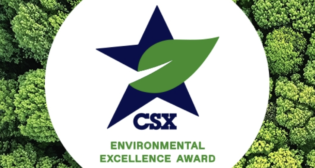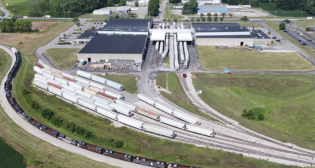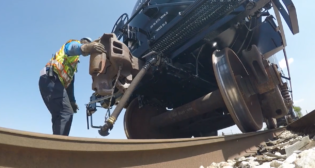
STB reversal on BNSF coal rate case: How serious?
Written by Nebraska Digital, administratorThe Surface Transportation Board has reversed a prior decision in longstanding litigation between BNSF Railway and Western Fuels/Laramie River, ruling that BNSF’s rates for a short-haul coal movement out of the Powder River Basin are unreasonable. The ruling reversed a fall 2007 decision in which STB determined that the rates were reasonable. Western Fuels originally challenged the rate reasonableness in 2004 for a coal move BNSF has termed “unusual.”
STB awarded Western Fuels/Laramie River approximately $100 million in reparations, for which BNSF says it has maintained a reserve of approximately half that amount. STB also capped rates through 2016, for a total reported present value of $345 million, according to BNSF. “BNSF strongly opposes STB’s decision on its merits and believes the process used to arrive at this result is unfair,” the railroad said. “Despite ruling in BNSF’s favor once, the STB substantially revised its large rate case rules, and then allowed the shipper to submit a reconfigured new case. BNSF believes that this case is a manipulation of the new rules and represents an outcome-oriented decision in favor of this shipper. If this ruling stands, it would be the largest award for any shipper in the history of coal rate litigation. BNSF believes that the rates in question are reasonable from both a market and regulatory perspective.” The railroad plans to appeal.
Wall Street has a somewhat different perspective. Morgan Stanley analysts William Greene and Adam Longson said that although STB’s reversal is “another sign that Washington is a little less ‘rail-friendly’” and “demonstrates that there are political pressures to curb rail pricing,” if the agency practices a “balanced approach” to rate regulation, it’s possible that efforts to re-regulate railroads will “lose urgency in Congress.”
 STB’s ruling “is not a game-changer for rail rate regulation,” Greene and Longson said. However, “with investors already skeptical about rail pricing, it could pressure shares near-term. . . . As captive rates move higher, shipper wins in rate cases could become more common, leading more railroads to settle at regulatory limits rather than face the cost of litigating a rate case.” On a more positive note, the analysts said they believe the case “has a number of facts that make it unlikely to be used as a precedent for future rate cases. We doubt the decision will lead to a significant increase in rate case filings from other shippers.”
STB’s ruling “is not a game-changer for rail rate regulation,” Greene and Longson said. However, “with investors already skeptical about rail pricing, it could pressure shares near-term. . . . As captive rates move higher, shipper wins in rate cases could become more common, leading more railroads to settle at regulatory limits rather than face the cost of litigating a rate case.” On a more positive note, the analysts said they believe the case “has a number of facts that make it unlikely to be used as a precedent for future rate cases. We doubt the decision will lead to a significant increase in rate case filings from other shippers.”
The Western Fuels case is one of the first to use STB’s Maximum Markup Methodology procedures to determine the amount of differential pricing allowed for captive traffic that can be used to subsidize more competitive moves. “The SAC (Stand-Alone Cost Test) used in the rate case examined a high density lane with efficient unit trains that should keep unit variable costs quite low,” Greene and Longson said. “It assumes traffic is rerouted over an assumed extension, which likely reduced the variable costs and changed the density of the line. While Western Fuels only moves eight million tons annually, the traffic and costs used in the rate case assessed the revenue and costs of a 200-million-ton line. Therefore, it’s not surprising the final revenue-to-variable-cost assessment mandated a lower absolute rate.”
As for the direct effects on BNSF, Greene and Longson are predicting a 3% decrease in 2009 estimated EPS. Though the loss “is negative for underweight-rated BNSF,” the damages the railroad must pay “are small in the scheme of many years of earnings, and the value of the rate caps apply to a long period of time. Losing a rate case is never a positive, but in the scheme of BNSF’s coal franchise, these losses are certainly tolerable. One could argue that the move remains a profitable one, even at the lower rates.” They pointed out that BNSF’s 2009 tariff rate is being reduced 60% to 240% of variable cost, and that Western Fuels moves approximately eight million tons per year over a relatively short distance of slightly over 210 miles. “Western Fuels utilities are arguably the closest-served utilities to the PRB and near BNSF main lines, and therefore pay one of the lowest transportation rates of any utility to acquire PRB coal,” they noted.



